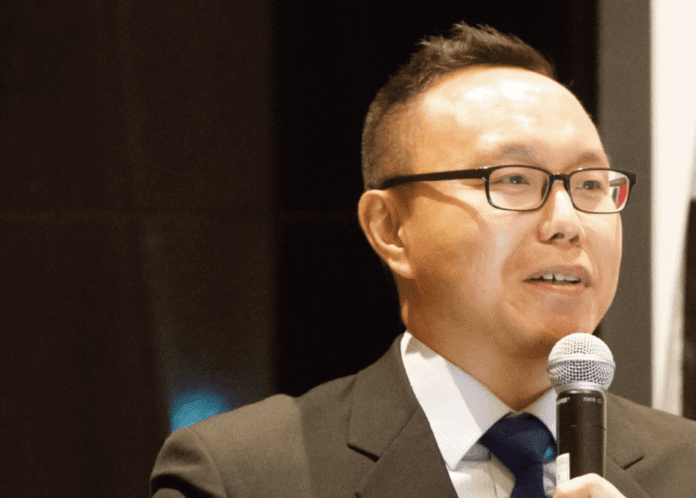In July 1941, Syngman Rhee, the first President of the Republic of Korea, revealed the reality and brutality of imperial Japan to the US in his book Japan Inside Out. He warned of the danger of Japan’s expansionism based on Shintoism, implying Japan could eventually collide with the US. At the time of publication, he did not receive much attention. However, in December of that year, with the attack on Pearl Harbor, he was regarded as a prophet in US society. Today a similar warning is growing regarding China.
China has been advancing its expansionist policy. COVID-19 has now exposed to the world how much control the Chinese Communist Party (CCP) exerts over Chinese society. Yet, it appears few people understand the gravity of the situation. While studying at Seoul National University (SNU) and serving international students, I have had the chance to befriend many Chinese students and visiting scholars over the past 20 years. I have been praying together with my dear Chinese friends for their country and its people. However, over the past two decades the remarkable growth of China has led to some worrisome changes in my Chinese friends.
In the early 2000s, ethnic Korean students from China cheered for South Korea in the international soccer match between South Korea and China. Although they were born and raised in China, they had a strong attachment to South Korea. However, only a few years later, a drastic change began to simmer to the surface. Around 2010, I found many of those ethnic Koreans from China now fervently supported China in international matches. It is largely the result of China’s Northeast Project that is aimed at re-claiming Korean history and geography as Chinese history and geography to weaken their ethnic identities. It is also an attempt to shake the foundation of the Korean people. The 2008 Beijing Olympics also served as a platform for fanning the flames of Sino-centric nationalism in China. When I met Chinese students in SNU, during these days, some cautiously talked about the fundamental problems of the CCP. In general, Sino-centrism and a certain level of pride and patriotism for a new rising China have grown considerably. It is very different from those humble Chinese friends I met in the early 2000s, who wanted to develop their country through the experience of South Korea. When it comes to the issue of trade war between the US and China, I hear many students saying that China moved too hastily and should have waited a little longer to overcome the US. When I hear these kind of sentiments, I wonder what would have happened if China had really laid low for a while.
The free trade system is based on the belief that free and fair trade promotes mutual understanding and interests among countries. It also promotes liberal democracy. Both assume universal values of human dignity, freedom with responsibility and a truth-based society by default. However, China’s development through its “Reform and Opening Up” policy has not internalized these values. Corruption of CCP officials overwhelms the market’s natural functions. Many believe banks in China are just money-making institutions to finance government projects. Accounting fraud of Chinese companies listed in the US are now being exposed. If a market fails to internalize universal values, it will eventually collapse. Economic development without the internalization of universal values will simply turn into a power game based on relativism. The spirit of free trade presupposes the sharing of universal values through active exchange of goods and services between countries. For this reason, it is extremely important that all nations involved in the free trade system abide by the universal values that are the basis for the system.
However, in China, there are significant obstacles for the internalization of these values. Despite China’s remarkable record of economic achievement, made possible by free trade with the world, Sino-centrism and Maoism (Chinese style communism) remain the mainstream ideological belief of the Chinese people. Most people outside of China do not know that the CCP still educates children with Marx’s historical materialism, an idea that human history evolves from a primitive communist society to slavery, then progresses from feudalism to capitalism and finally, communism. In their view, free market economy (capitalism) is defined as a problematic, evil system that will eventually collapse. The CCP has used capitalism as an easy scapegoat when it encounters any social, economic, or political problems. Their blame targets the US, which is believed to be the center of global capitalism, while the CCP forever remains the savior of all their problems. Some may doubt and claim this explanation as an exaggeration. However, it is important to bear in mind that China is a strongly controlled society, which is difficult to understand for those living outside of the control of the CCP. For instance, a legendary Chinese soccer player, Hao Hai Dung, recently criticized the CCP. Now information about him is no longer searchable in Baidu, a Chinese version of Google: he has been erased. This Sino-centric nationalist fervor is spreading among young people. The Ling Ling Hou generation, people born between 2000 and 2010, have grown up enjoying the benefits of strong economic growth. They uncritically follow and praise the CCP and Xi Jinping. Sino-centrism and Maoism seem to prevail over universal values in this new generation.
(To be continued)
David EunKoo Kim is the representative of the Truth Forum of Seoul National University, and absolutely committed to keeping the values of freedom, human-rights, and religions in the universities nationwide.
Mr. Kim majored in Law at Seoul National University, and currently pursuing his doctoral degree at the Law School of Seoul National University.
Truth Forum is the name of a group of conservative students in South Korea. Truth Forum has members from about 30 universities in Korea. Truth Alliance, a coalition group of Truth Forum at various universities, is led by David Kim who is the Representative of Truth Forum of Seoul National University.


